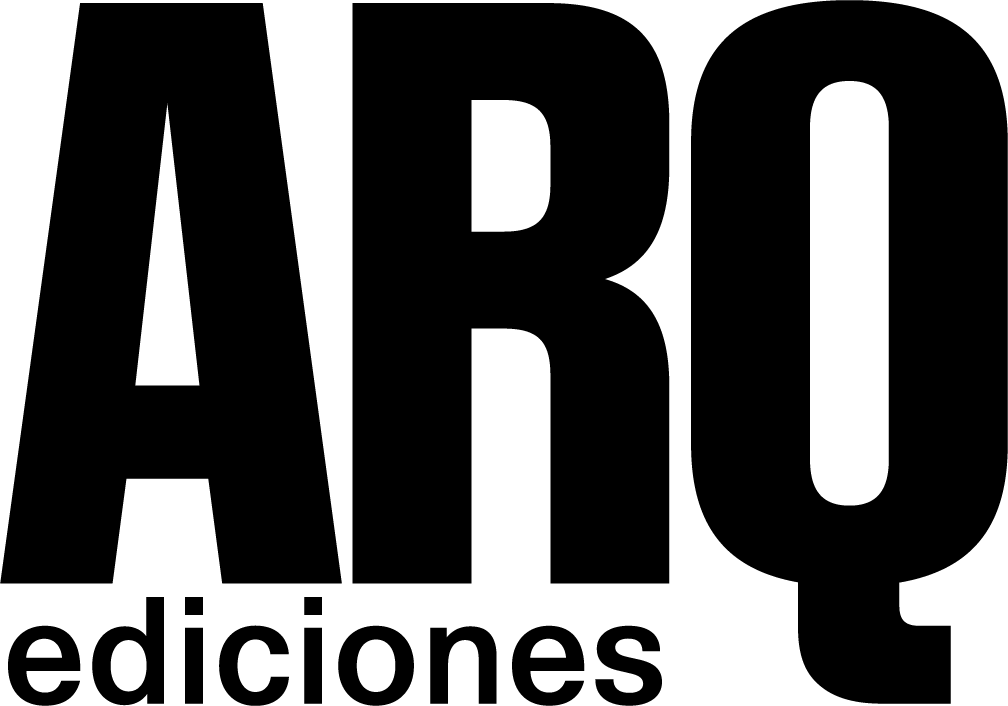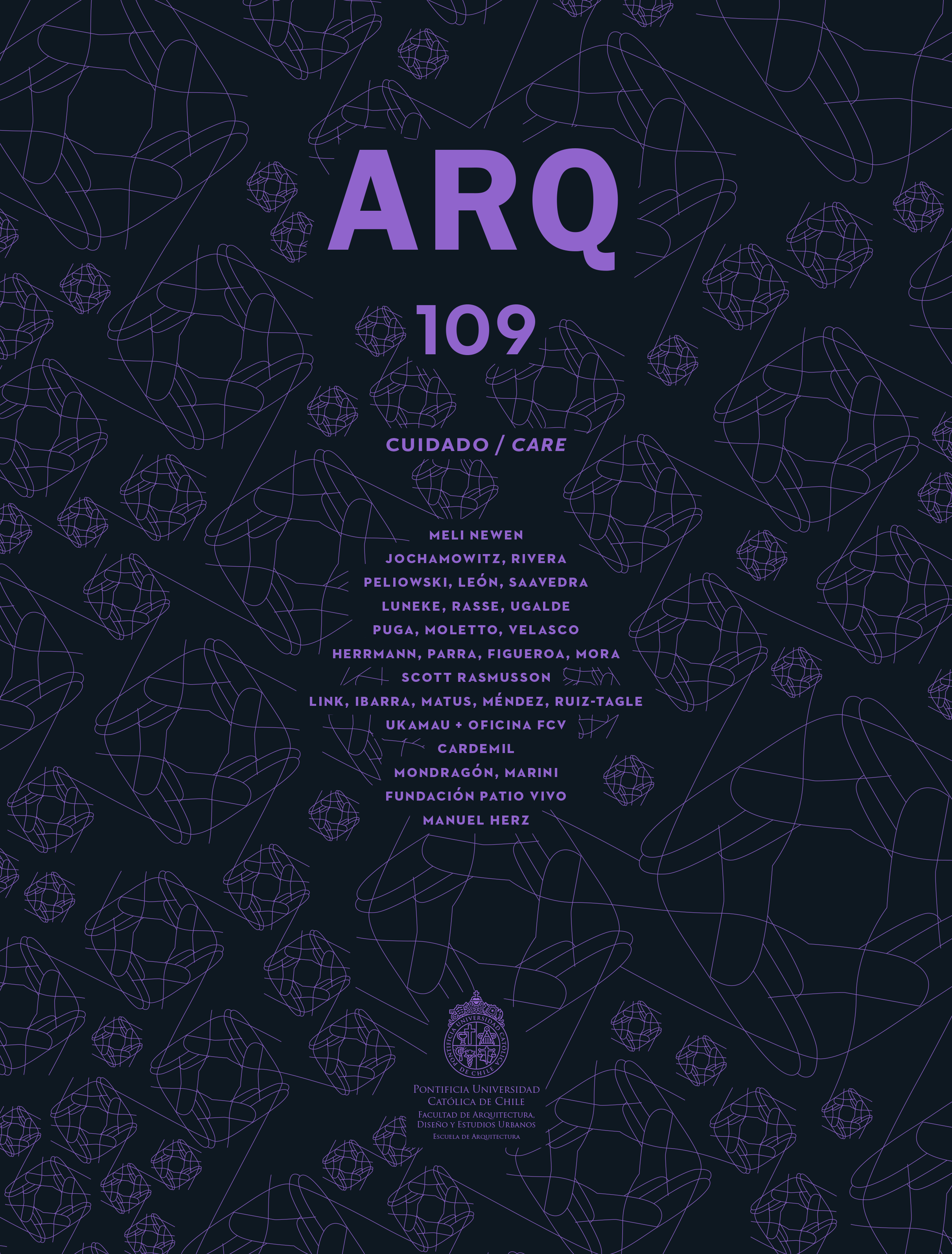ARQ 109 | Care / Cuidado (December 2021)
Libre acceso/Open Access
Francisco Díaz (ed.); several authors
Paperback
20.6 x 27 cm | 148 pp.
Spanish + English
ISSN: 0716-0852 / ISSN (online): 0717-6996
Among its many facets, architecture is one of the technologies of care. Constructions not only allow people and things to be cared for indoors, but they are also a first defense tool against the environment. They also offer places to carry our care, transfer cultural capital, or enable intergenerational contact. Not by chance, the most socially demanded architectural programs – such as houses, hospitals, or schools – are spaces for care. But architecture also allows other forms of care: not only of human beings or more-than-humans but also of the intangible institutions that humanize us, such as history, heritage, or culture.
With contributions by: Marés Sandor, Pedro Arellano, Ana Paillamil, Mariana Jochamowitz, Nicolás Rivera, Amarí Peliowski, Thiare León, Valentina Saavedra, Alejandra Luneke, Alejandra Rasse, Isabel Ugalde, Cecilia Puga, Paula Velasco, Alberto Moletto, Marie Geraldine Herrmann-Lunecke, Cristhian Figueroa, Francisca Parra, Rodrigo Mora, Scott Rasmusson Källander, Felipe Link, Macarena Ibarra, Christian Matus, María Luisa Méndez, Javier Ruiz-Tagle, Ukamau + Oficina FCV, Francisco Cardemil, Hugo Mondragón, Guillermo Marini, Ángela Ibáñez, Marcial Huneeus, Álvaro Benítez, Alexandra Nicolaides, Manuel Herz Architects.
Buy
Read on ARQ+
PDF (SciELO)
Paperback
20.6 x 27 cm | 148 pp.
Spanish + English
ISSN: 0716-0852 / ISSN (online): 0717-6996
Among its many facets, architecture is one of the technologies of care. Constructions not only allow people and things to be cared for indoors, but they are also a first defense tool against the environment. They also offer places to carry our care, transfer cultural capital, or enable intergenerational contact. Not by chance, the most socially demanded architectural programs – such as houses, hospitals, or schools – are spaces for care. But architecture also allows other forms of care: not only of human beings or more-than-humans but also of the intangible institutions that humanize us, such as history, heritage, or culture.
With contributions by: Marés Sandor, Pedro Arellano, Ana Paillamil, Mariana Jochamowitz, Nicolás Rivera, Amarí Peliowski, Thiare León, Valentina Saavedra, Alejandra Luneke, Alejandra Rasse, Isabel Ugalde, Cecilia Puga, Paula Velasco, Alberto Moletto, Marie Geraldine Herrmann-Lunecke, Cristhian Figueroa, Francisca Parra, Rodrigo Mora, Scott Rasmusson Källander, Felipe Link, Macarena Ibarra, Christian Matus, María Luisa Méndez, Javier Ruiz-Tagle, Ukamau + Oficina FCV, Francisco Cardemil, Hugo Mondragón, Guillermo Marini, Ángela Ibáñez, Marcial Huneeus, Álvaro Benítez, Alexandra Nicolaides, Manuel Herz Architects.

